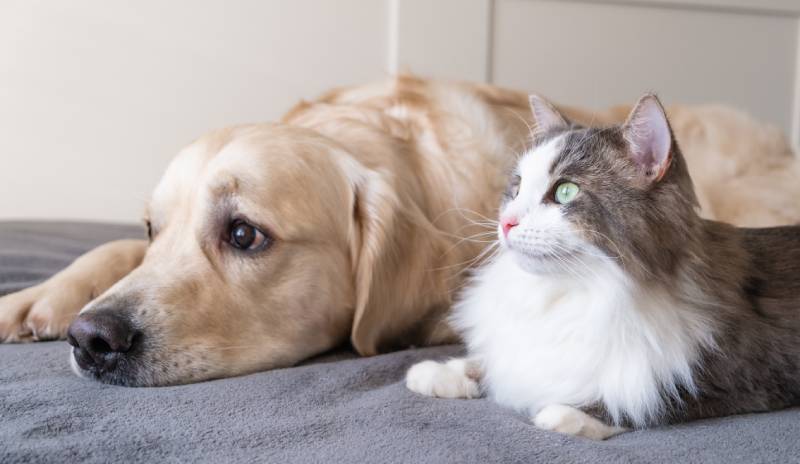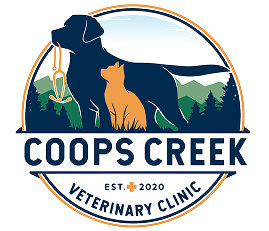Pet X-rays
Has your pet been limping?
We can find the reason why. Coops Creek Veterinary Clinic has advanced diagnostic tools, including X-ray imaging, to assess and diagnose your pet’s health. X-rays, also known as radiographs, provide a non-invasive way to examine your pet’s bones, organs, and tissues. Our veterinary team is experienced in radiology for efficient diagnostics.

X-rays Explained
X-rays use low levels of radiation to create detailed images of your pet’s internal structures. During the procedure, your pet will lie still on the X-ray table while a machine takes pictures from different angles. The X-rays pass through soft tissues, like muscles and organs, and are absorbed by denser materials, such as bones, which appear as lighter areas in the image. X-rays are painless for your pet and can be completed quickly in most cases. Once the X-rays are taken, our veterinarians will review the images and discuss the findings with you.
Common Reasons for Veterinary Radiology
There are many situations where an X-ray may be necessary to diagnose your pet’s condition. Some of the most common reasons for diagnostic pet X-rays include bone fractures, digestive issues, swallowed objects, respiratory concerns, and joint or mobility problems. If our veterinarians suspect any of these conditions after a full physical examination, they may suggest that radiographs are taken. By capturing detailed images of your pet’s internal structures, X-rays provide vital information that helps guide our treatment recommendations and care plans.
FAQS for Cat and Dog X-rays
Will my pet need sedation for an X-ray?
Likely no. In some cases, we may recommend sedation to keep your pet calm and still during the X-ray if they are anxious or in pain. This sedation will allow us to capture clear images for an accurate diagnosis. If we think your pet will need to be sedated, that will be discussed with you before an X-ray is performed.
How long does a pet X-ray take?
The X-ray process is typically quick, often taking just a few minutes. However, the time may vary depending on the area being examined and whether sedation is needed.
What conditions can radiography detect?
Radiograph equipment is a versatile tool. X-rays can help detect bone fractures, foreign objects in the digestive tract or other blockages, lung conditions, heart issues, arthritis, hip dysplasia, and more.
Are X-rays safe for my pet?
Yes, X-rays are safe for pets. The level of radiation used is very low, and our team takes all necessary safety precautions during radiology appointments.
Call for Pet X-rays in Dunlap, TN
Our X-ray services at Coops Creek Veterinary Clinic lead our veterinarians to quickly and effectively diagnose a wide range of conditions so that your pet receives the right treatment. If your pet needs an X-ray or if you have any concerns about their health, contact us today to schedule an appointment. Same-day urgent care appointments are available, and we’re accepting new clients!

Coops Creek Veterinary Clinic performs X-rays for cats and dogs in Dunlap, Sequatchie County, Whitwell, Jasper, Pikeville, Bledsoe County, Marion County, Grundy County, and neighboring Tennessee areas.

